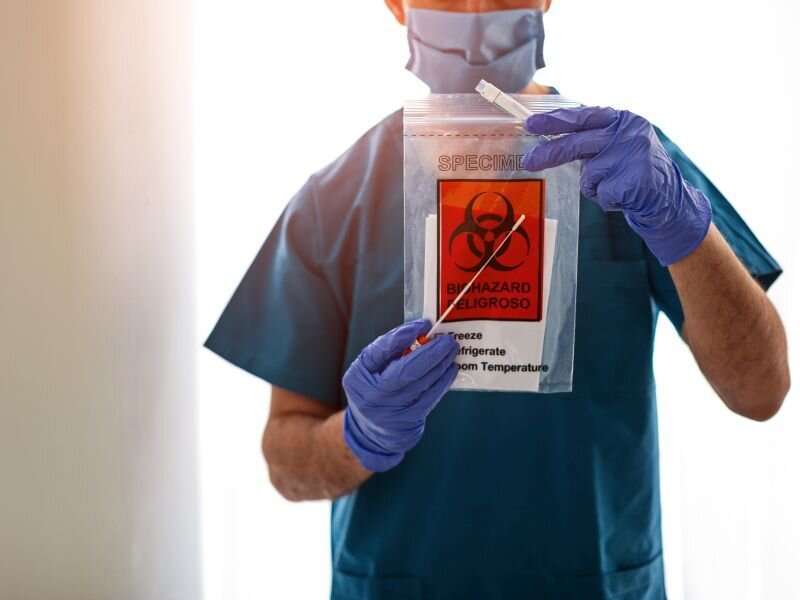
(HealthDay)—CRISPR-based assays appear to be reliable for surveillance testing and detection of severe acute respiratory syndrome coronavirus 2 (SARS-CoV-2) outbreaks in higher education settings, according to a study published online Feb. 11 in JAMA Network Open.
Jennifer N. Rauch, Ph.D., from the University of California in Santa Barbara, and colleagues used CREST (Cas13-based, rugged, equitable, scalable testing), a CRISPR-based test, and a point-of-reference reverse transcriptase-quantitative polymerase chain reaction (RT-qPCR) test to assess the prevalence of SARS-CoV-2 in asymptomatic participants in a university community. The analysis included 1,808 asymptomatic participants, who self-collected oropharyngeal swab samples from May 28 to June 11, 2020, and from June 23 to July 2, 2020 (732 and 1,076 individuals, respectively).
The researchers found that test results were all negative for the early cohort, but there were nine positive results by RT-qPCR in the later cohort. Eight of nine positive samples were detected by the CRISPR-based assay and confirmed by Clinical Laboratory Improvement Amendments-certified diagnostic testing. Individuals with positive cases had a mean age of 21.7 years, with all positive individuals self-identifying as students. In the asymptomatic cases, the viral loads detected were similar to those seen in clinical samples, highlighting the potential of covert viral transmission. Relaxation of stay-at-home measures coincided with the shift in viral prevalence.
“The concordance between RT-qPCR testing and our strategy of using oropharyngeal swabs and CRISPR-based assay substantiates the feasibility of using simpler, equally robust approaches for high-volume recurrent testing, which is a desirable strategy to facilitate the reopening of colleges and universities,” the authors write.
Source: Read Full Article
